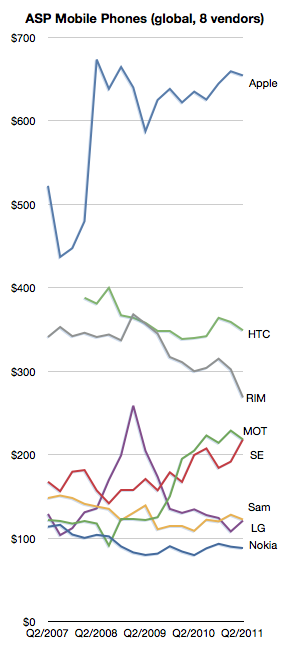Samsung has, over the years, shipped phones using almost every operating system it could get a hold of. That includes Symbian, Windows Mobile, Windows Phone, LiMo, Android, PalmOS and OPhone.
As far as I know, today its portfolio includes Android, Windows Phone and its own Bada OS. The relaxed attitude to platform exclusivity at Samsung is in stark contrast with almost all other competitors who either for the sake of encouraging their own platforms or minimizing development costs maintained either one or two smartphone platforms.
Samsung justified their polyplatform strategy a few years ago by saying that different platforms are popular in different regions and as they did not want to be excluded from any market, they felt that being agnostic is the best policy.
The idea that platforms are not universal, but the result of provincial preferences is interesting. It’s a concession that “politics” plays a large part in mobile markets. However, for all the volume growth the strategy has produced, the strategy has not paid off in terms of higher margins or pricing power as the following chart shows.

So perhaps polyplatform thinking is coming to an end.
Exhibit A is Bada itself. The idea that Samsung would build its own OS came as a surprise to anyone following their history. Why did Samsung buy a book when there’s a library in town?
Exhibit B is the repeated statements of Samsung’s Chairman saying that the company should invest in software. Software!
Exhibit C is the statement today that Samsung intends to spend some of its $9.3 billion R&D budget on Software.
The money is expected to be used to strengthen the company technology prowess in such areas as mobile phones, semiconductors, displays and electronics products. Funds will also be allocated to software development.
Samsung investing in software development does indicate that perhaps the company does see value in that component and would prefer not to be dependent on suppliers for it.
In theory, as the market power of inputs (supplier power) increases due to concentration and forward integration it makes sense to backward integrate.
As a supplier itself, however, Samsung has to ask itself if its component customers are thinking the same thing.
No comments:
Post a Comment